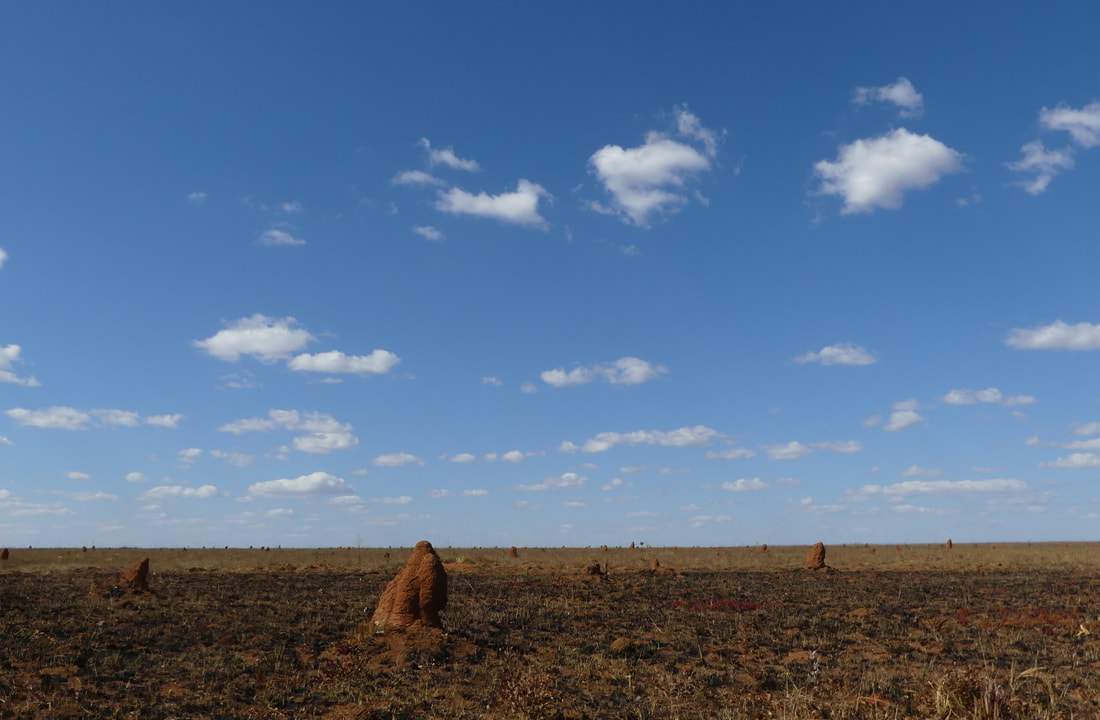Impact work
My research is to a large extent motivated by a desire to improve real-world outcomes. To that end, I am particularly keen to engage with policy makers in government, business and NGOs. I have been lucky to do so on multiple occasions as part of the University of Exeter Mechanism Design Team. Our specific focus to date has been work on improving the way in which markets for environmental services function.
Three things, I think, have been key to our success. First, we have been very lucky in working with partner organisations who have been very accommodating, and as keen as us to better understand what works and what doesn't; aware that discovering the best solution may take time and trial and error. Second, in working with these partner organisations to fully understand the issues they face and their specific objectives, we have tried to listen and question with a desire to learn. Third, we have always been clear that different problems require different solutions - it is not a "one size fits all" world. I document some of the projects that we have been involved with below. If you would like further information on any of these, or would like some advice on a scheme of your own, please do feel to reach out by email: b.j.balmford [at] exeter.ac.uk Poole Harbour cover crop auction
We offered advice to EnTrade on the reverse auction that they run in the Poole Harbour catchment (UK). There, Wessex Water funds the planting of cover crops on land that would otherwise be bare over winter, helping to reduce the amount of nitrogen that leaches from the soil into the water course. To determine which fields would be offered funding, and how much they would be paid, EnTrade organises bi-annual reverse auctions, which first ran in 2016. While the scheme was successful in saving the required amount of nitrogen, EnTrade were concerned that farmers were having to revise their bids lots, and there was a large degree of last-minute bidding (so-called sniping). Following discussions with us, EnTrade changed one aspect of the auction design - instituting a "uniform price" rule to determine prices - ahead of the 2019 auctions. The result was to significantly reduce the degree of bid updating and sniping, as well as ensuring a sense of fairness with all farmers getting paid the same amount per unit of delivery. Moreover, because of the particular incentives, the amount paid per unit nitrogen reduced substaintially, allowing EnTrade to fund more farmers and more fields than before, and acquire a greater improvement in water quality. There is more detail on the scheme available here.
Woodland carbon guarantee auctionIn 2019 the Forestry Commission contacted us for advice on the design of the Woodland Carbon Guarantee auction. Again, this is a reverse auction, offering the successful bids a guaranteed minimum price for the carbon that their projects are able to generate. In collaboration with the FC, we developed an auction design that sought to ensure competition amongst bidders given the possibility that the auction budget may not be met. To do so, we developed a rule to restrict the number of successful bids by instituting a rule based upon the percentage of bids below the (unknown) reserve price. We also worked alongside the FC to ensure that their preference for native woodland, with its co-benefits, was establsihed within the auction rules. As can be seen in the results of the auction, the scheme has successfully ensured that a number of woodland planting projects have been able to go ahead, and that the FC has been able to secure value-for-money for the public with its guaranteed minimum prices. More information on the scheme and auction rules can be found here.
Catchment marketsWorking with EnTrade, Wessex Water and Wheatley Young and Partners, we've helped to design "catchment markets" for Somerset, the Solent, and the greater Bristol area. The marketplaces will bring together landowners and credit buyers (typically housing developers) to facilitate the exchange, initially, of nitrogen, phosphorus and biodiversity net gain credits, and in due course potentially expand to carbon. Unlike the other case studies, these are "double-sided" markets in which there are multiple buyers and sellers. Moreover, the potential demand and supply comes in blocks: a landowner can offer either all of a particular project, or none of it; similarly, developers need credits for either all or none of a particular housing development. We've worked together to design a mechanism that allows for such "package" bidding. The pricing rule also ensures that it is never a bad strategy for people to bid at cost or value; such that participation is as simple as possible. And all the while both sides of the market will be fairly rewarded for the surplus that they generate. While we can't tell you how these performed - as we're just about to launch the first round - we can tell you that we're optimistic that the design will ensure the efficient and fair trade of phosphorus credits while also being readily expandable to credits for other ecosystem services. There is more detailed information available on the particular scheme designs and rules for Somerset, Solent, and Bristol.
|

